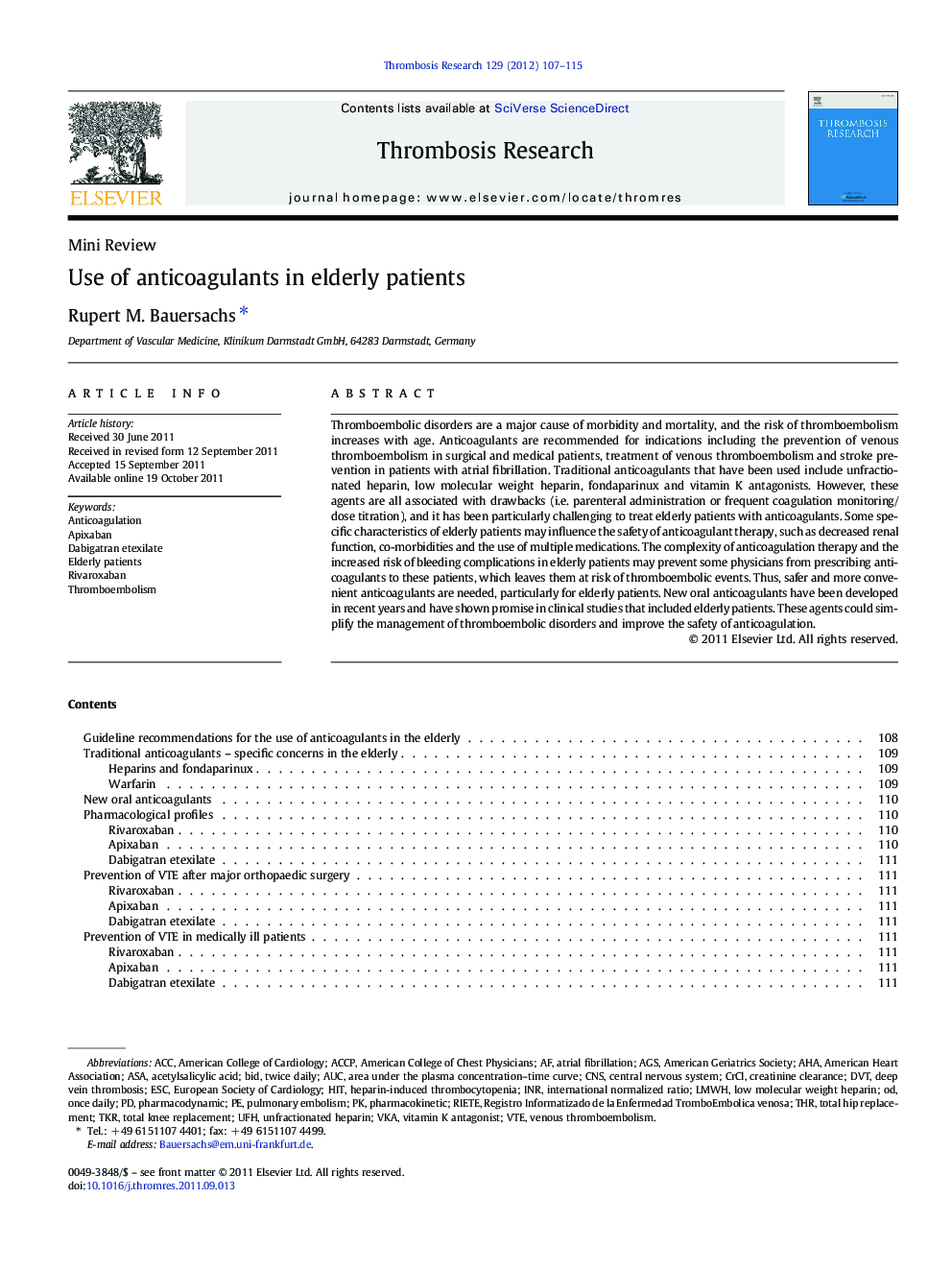| کد مقاله | کد نشریه | سال انتشار | مقاله انگلیسی | نسخه تمام متن |
|---|---|---|---|---|
| 3027458 | 1182973 | 2012 | 9 صفحه PDF | دانلود رایگان |

Thromboembolic disorders are a major cause of morbidity and mortality, and the risk of thromboembolism increases with age. Anticoagulants are recommended for indications including the prevention of venous thromboembolism in surgical and medical patients, treatment of venous thromboembolism and stroke prevention in patients with atrial fibrillation. Traditional anticoagulants that have been used include unfractionated heparin, low molecular weight heparin, fondaparinux and vitamin K antagonists. However, these agents are all associated with drawbacks (i.e. parenteral administration or frequent coagulation monitoring/dose titration), and it has been particularly challenging to treat elderly patients with anticoagulants. Some specific characteristics of elderly patients may influence the safety of anticoagulant therapy, such as decreased renal function, co-morbidities and the use of multiple medications. The complexity of anticoagulation therapy and the increased risk of bleeding complications in elderly patients may prevent some physicians from prescribing anticoagulants to these patients, which leaves them at risk of thromboembolic events. Thus, safer and more convenient anticoagulants are needed, particularly for elderly patients. New oral anticoagulants have been developed in recent years and have shown promise in clinical studies that included elderly patients. These agents could simplify the management of thromboembolic disorders and improve the safety of anticoagulation.
Journal: Thrombosis Research - Volume 129, Issue 2, February 2012, Pages 107–115